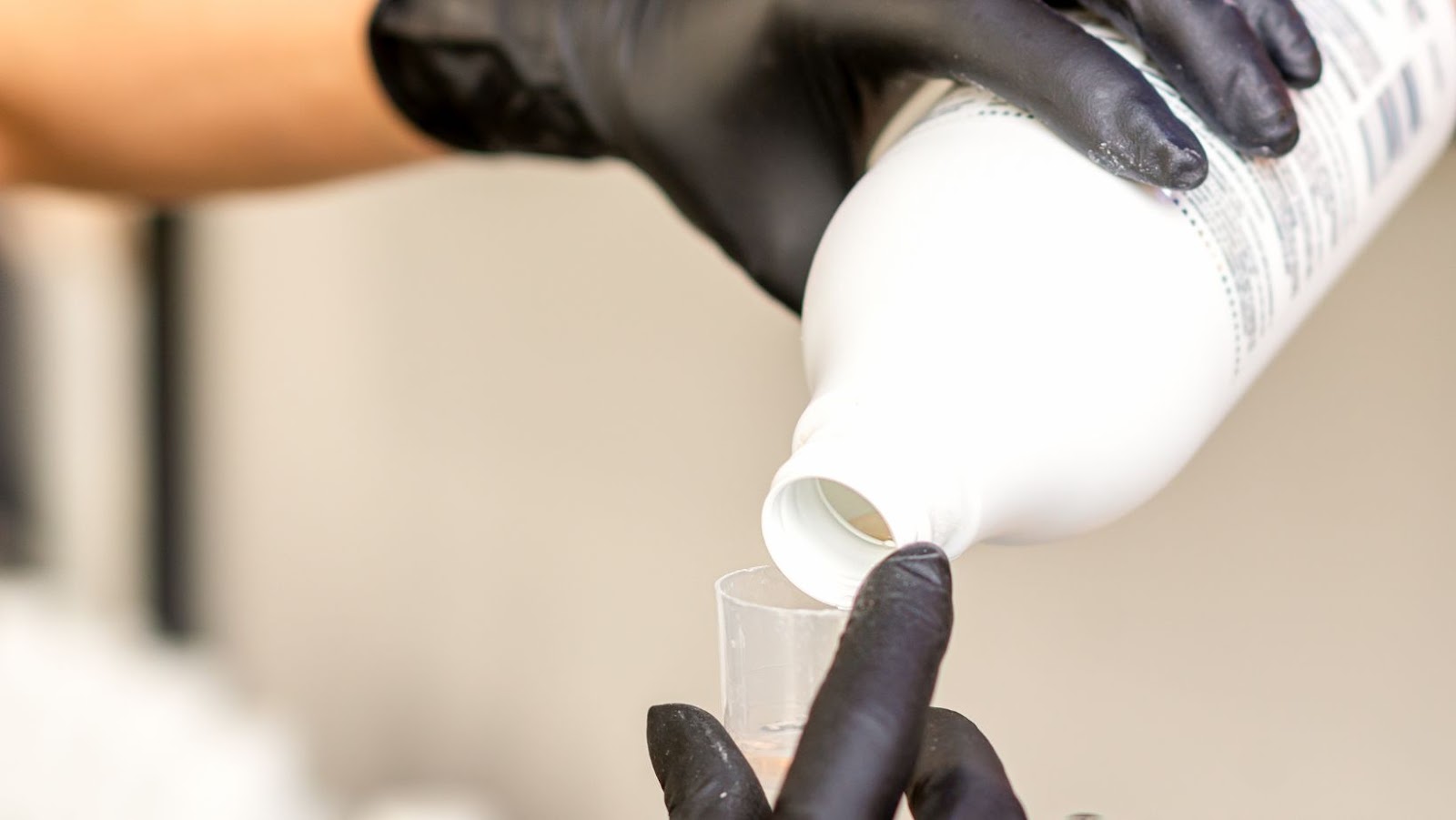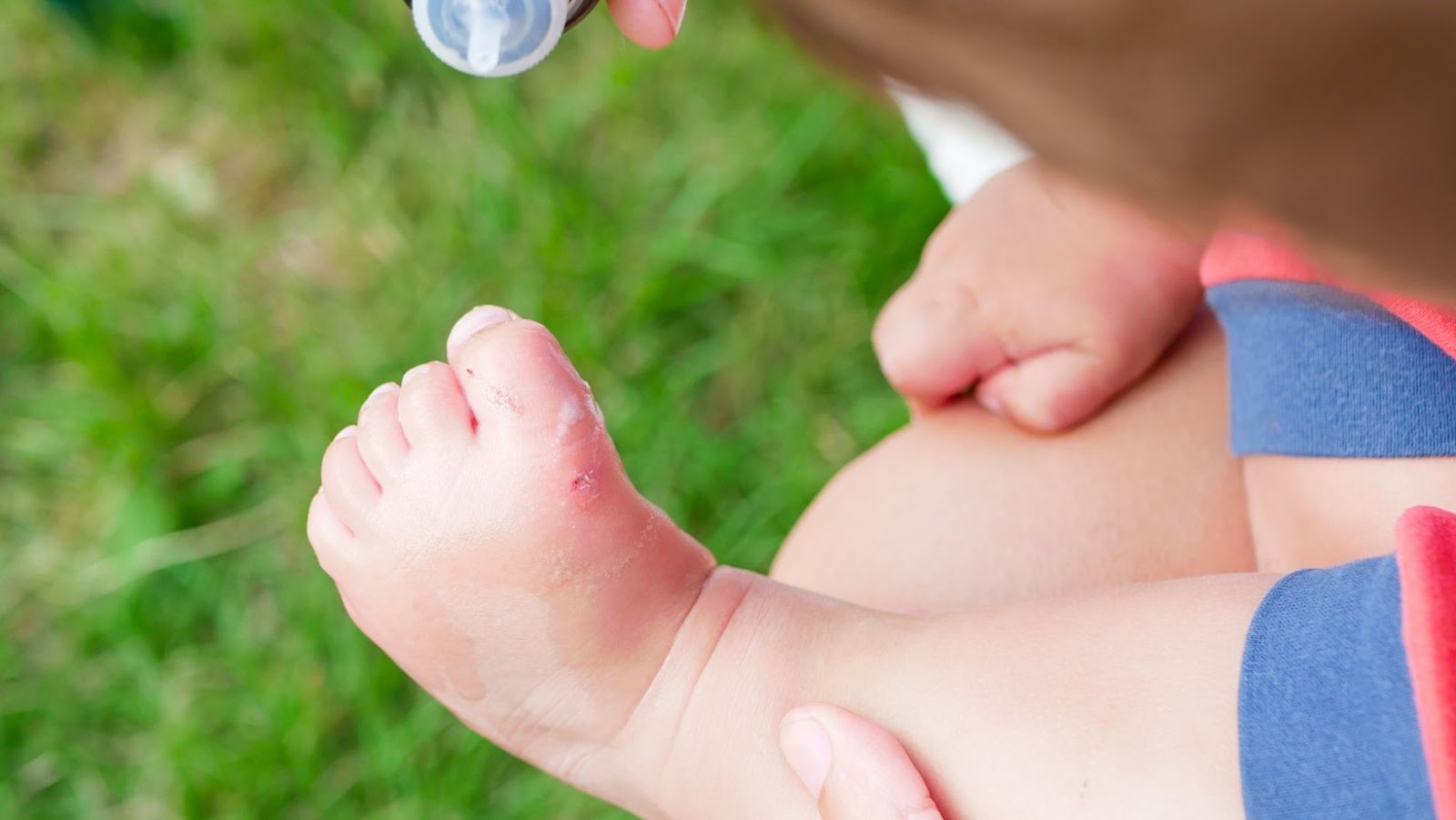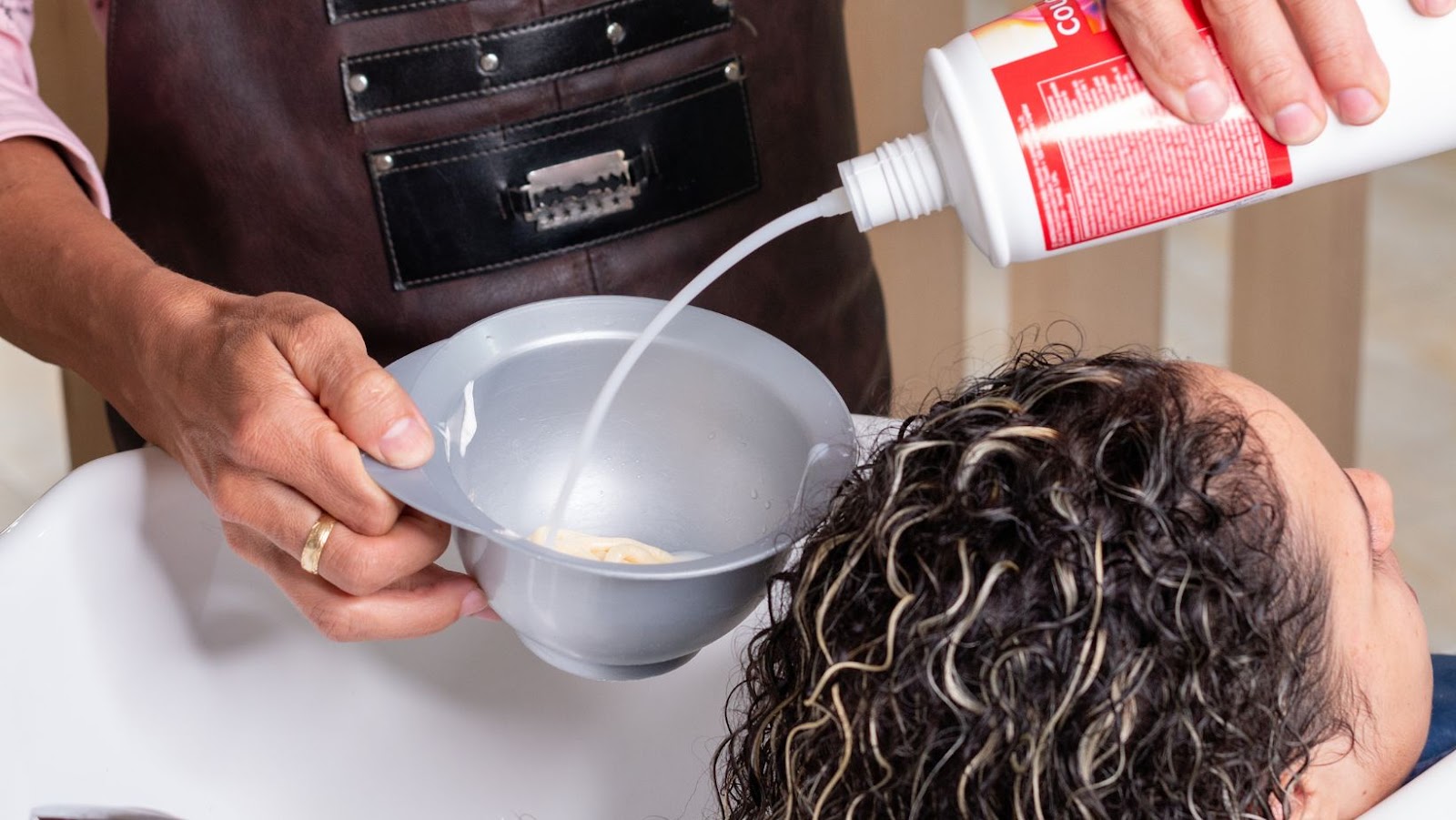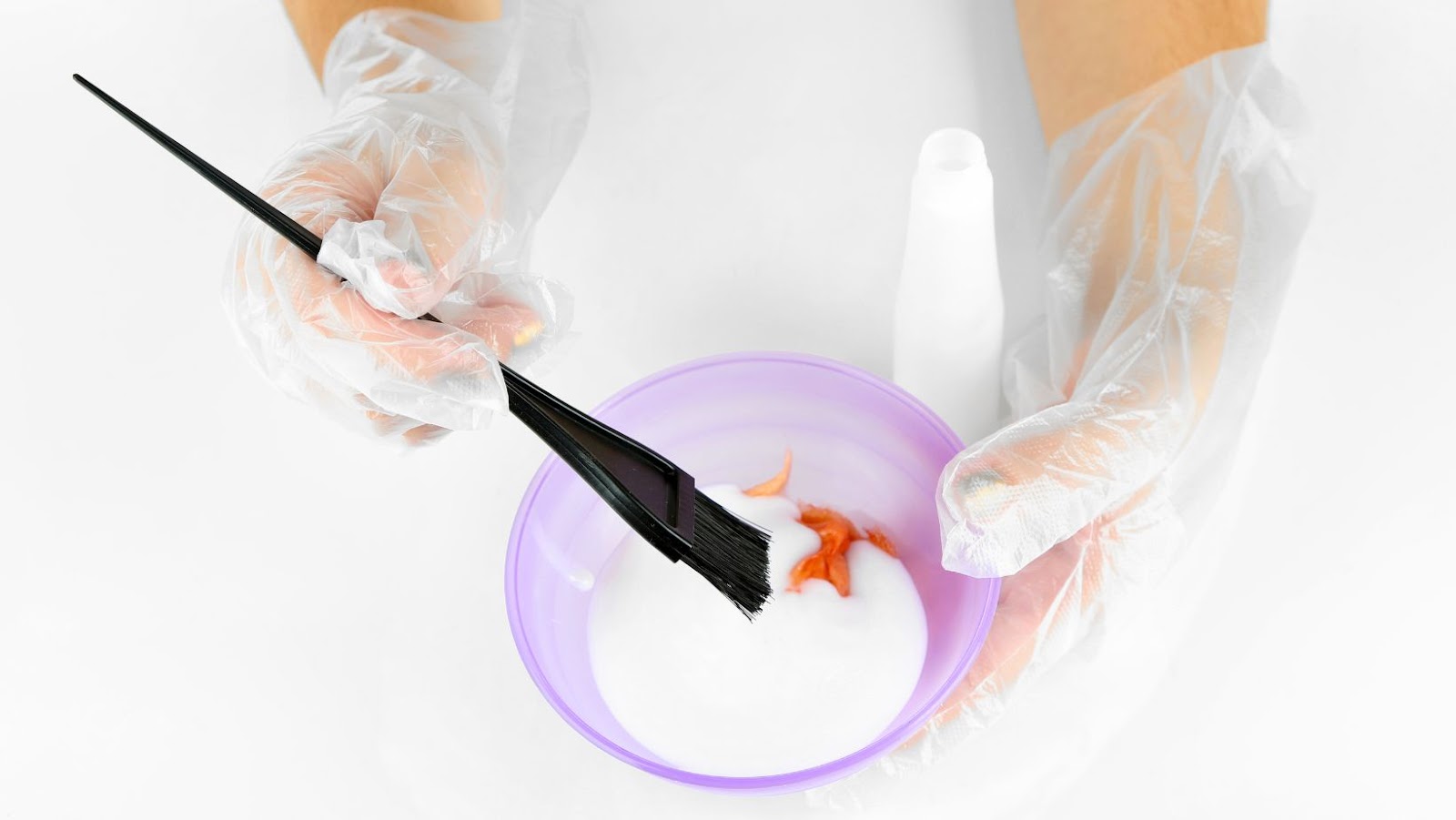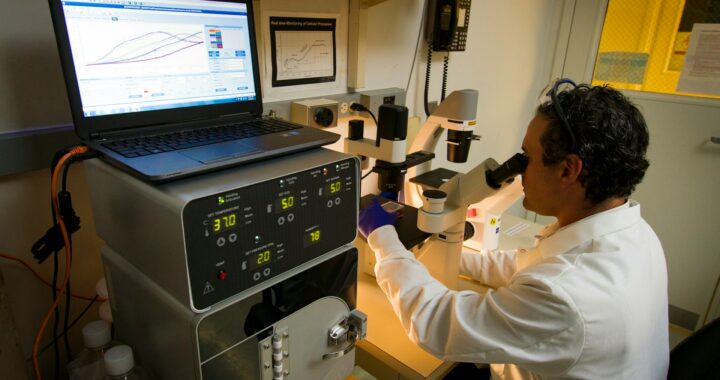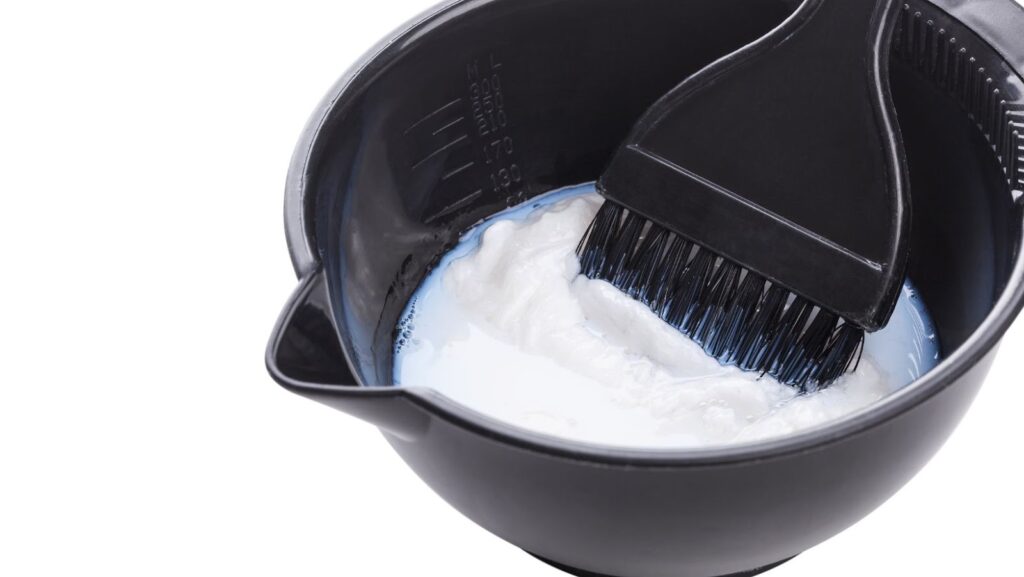
Can I Use Benzoyl Peroxide With Other Products?
Yes, benzoyl peroxide can be used with other products, but caution should be exercised to avoid adverse reactions or reduced effectiveness of the products used.
Here are some tips to keep in mind:
|
|
|
|
By following these tips, you can safely use benzoyl peroxide with other products and enhance its effectiveness in controlling acne breakouts.
Understanding Benzoyl Peroxide
Benzoyl Peroxide is a common ingredient used in many acne-fighting skin care products. It works by killing the bacteria that cause breakouts, reducing inflammation, and exfoliating the skin. However, it is important to understand the role of Benzoyl Peroxide, and how it interacts with other products, before you begin using it.
In this article, we will be discussing what Benzoyl Peroxide is and exploring whether or not it can be used in combination with other products.
What is Benzoyl Peroxide?
Benzoyl Peroxide is a common ingredient used in various acne products due to its anti-bacterial properties. It helps in clearing acne by penetrating your pores and killing the bacteria that causes acne on the surface of the skin. However, it can be drying and may cause irritation, especially if used with other harsh acne products. Therefore, it’s essential to use benzoyl peroxide with caution and not to overuse it.
Here’s How to Use Benzoyl Peroxide Effectively:
| Begin by using a small amount of product on a small area of your skin and let it sit for a few minutes to test for any adverse reaction. If no reaction occurs, start by using it once a day and gradually increase the frequency. |
| Avoid using benzoyl peroxide with other exfoliating agents like glycolic acid or salicylic acid as it can increase skin sensitivity and cause dryness. |
| Pro tip: Always follow up with a moisturizer to avoid dryness and irritation. |
How Does Benzoyl Peroxide Work on Acne?
Benzoyl Peroxide is a topical medication widely used to treat acne by reducing inflammation, unclogging pores, and killing bacteria that causes breakouts. It works by penetrating into the skin and releasing free radicals, which destroy the bacteria Propionibacterium Acnes.
Benzoyl Peroxide also reduces inflammation by decreasing the number of white blood cells sent to the affected area and breaking down the skin’s sebum. While it is effective on its own, it can also be used in combination with other acne-fighting ingredients, such as salicylic acid or retinoids.
However, it is essential to introduce new products gradually and observe any possible irritations or allergic reactions. It is also crucial to moisturize the skin adequately as Benzoyl Peroxide can be drying and cause skin irritation.
Is Benzoyl Peroxide an Exfoliant?
Benzoyl Peroxide is primarily known as an acne-fighting ingredient but it also exfoliates the skin – Benzoyl Peroxide can be a two-in-one product.
When used as an acne treatment, Benzoyl Peroxide fights acne by eliminating the bacteria that cause it, and it unclogs pores by removing dead skin cells. This exfoliation process reveals smoother and clearer skin. However, it is not a chemical exfoliant like salicylic acid or glycolic acid. It works by producing oxygen, which eliminates bacteria and excess oil.
Since Benzoyl Peroxide has exfoliating properties, it’s best not to use it alongside other exfoliating products, as this can dry out and irritate the skin. It’s ideal to use it with non-exfoliating products like a good moisturizer, which helps retain moisture in the skin and prevents excessive dryness.
Products to Use With Benzoyl Peroxide
If you’re looking to treat acne-prone skin, one of the best ways to do it is to use benzoyl peroxide. This over-the-counter medication is an exfoliant that helps to unclog pores and reduce inflammation, but can it be used with other products for best results? Let’s find out what products you can use with benzoyl peroxide to ensure the best possible results.
Moisturizers
Moisturizers are an essential part of any skincare routine, especially when using benzoyl peroxide. It is safe to use benzoyl peroxide with other products, including moisturizers. In fact, moisturizers can help reduce dryness and irritation caused by benzoyl peroxide. However, it’s important to choose the right moisturizer that won’t clog your pores or interfere with the effectiveness of benzoyl peroxide.
Here are some tips to keep in mind:
|
|
|
|
Pro Tip: When using multiple skincare products, it’s important to patch test each one to ensure they don’t cause irritation or allergic reactions.
Sunscreens
When it comes to using benzoyl peroxide along with other skincare products, certain precautions must be taken to avoid any potential irritation or skin damage, especially while dealing with acne. Benzoyl Peroxide, when used with the right products, can produce impressive results in clearing acne. However, using it with the wrong products can cause dryness, inflammation, and redness.
Here are a few products that pair well with benzoyl peroxide:
| 1. Lightweight moisturizers: | They do not clog pores and provide adequate hydration to the skin. |
| 2. Sunscreen: | It helps protect the skin from UV damage and reduces the chances of post-inflammatory hyperpigmentation. |
| 3. Fragrance-free, soap-free, and non-comedogenic cleansers. | |
| 4. Non-exfoliating toners: | avoid alcohol-based or astringent toners. |
It is better to avoid using other acne-fighting ingredients like salicylic acid or retinoids with benzoyl peroxide, as they can lead to skin irritation and dehydration. Consulting a dermatologist before trying out any new combination of products is always a wise decision.
Products That Contain Salicylic Acid
Salicylic acid is a popular ingredient found in a variety of skincare products, including cleansers, toners, and spot treatments. Here are some of the most common products that contain salicylic acid and can be used with benzoyl peroxide:
| – Cleansers: | Salicylic acid cleansers are excellent for gently exfoliating the skin and keeping pores clear. Look for a low concentration of salicylic acid (between 0.5% to 2%) for daily use. |
| – Toners: | Salicylic acid toners can effectively remove excess oil and dead skin cells from the skin’s surface. Again, look for a low concentration of salicylic acid and use no more than once per day. |
| – Spot Treatments: | Salicylic acid spot treatments can help to reduce inflammation and breakouts. Use them as needed, but be careful not to overdo it, as high concentrations of salicylic acid can irritate the skin. |
When using benzoyl peroxide with other products, such as those containing salicylic acid, it’s essential to start with a low concentration and monitor your skin’s reaction. Overuse or combining high concentrations of benzoyl peroxide and salicylic acid can lead to dryness, redness, and irritation.
Products That Contain Retinol
Retinol is a popular ingredient in the skincare industry due to its anti-aging benefits. Here are some skincare products that contain retinol:
| 1. Retinol creams: | Retinol creams are widely available and can be easily incorporated into your skincare routine to reduce wrinkles and fine lines. |
| 2. Retinol serums: | Retinol serums contain a higher concentration of retinol, making them more potent in reducing the appearance of aging. |
| 3. Retinol eye creams: | Retinol eye creams are specifically formulated for the delicate eye area and can help reduce wrinkles, crow’s feet, and dark circles. |
While using benzoyl peroxide with other skincare products, it’s essential to check if they contain any ingredients that may react poorly with benzoyl peroxide. Avoid using retinol and benzoyl peroxide together, as they may cause dryness, irritation, and peeling when used simultaneously. It’s best to consult a dermatologist before using these products together.
Pro tip: Always patch test new products before incorporating them into your skincare routine to avoid any adverse reactions.
Products to Avoid With Benzoyl Peroxide
Benzoyl peroxide is a common exfoliant found in many over-the-counter skincare products for acne. While there are many benefits to using benzoyl peroxide, it can react badly to certain other ingredients, making it important to avoid using certain products with benzoyl peroxide.
In this section, we’ll take a look at the products to avoid using with benzoyl peroxide.
Products That Contain Alpha Hydroxy Acids
Alpha Hydroxy Acids (AHAs) are widely used in various beauty and skincare products due to their exfoliating properties. If you’re using benzoyl peroxide for acne treatment, it’s essential to know which products contain AHAs that may interact with it.
AHAs include glycolic acid, lactic acid, citric acid, and malic acid. Therefore, it’s best to avoid products like toners, cleansers, and peels that contain AHAs while using benzoyl peroxide to prevent skin irritation, dryness, and peeling. You can safely use benzoyl peroxide with products that contain salicylic acid or retinol, but it’s best to consult a dermatologist before using any new skin care product in conjunction with benzoyl peroxide.
Products That Contain Vitamin C
Vitamin C is a powerful antioxidant that offers a range of skin benefits including brightening, anti-aging, and anti-inflammatory properties. Some products that contain Vitamin C include:
| 1. Vitamin C serums: | A common skincare product that usually contains 10-20% Vitamin C. |
| 2. Moisturizers and creams: | Many moisturizers contain Vitamin C as an active ingredient for added benefits. |
| 3. Sunscreen: | Vitamin C is often combined with sunscreen to provide additional protection from free radical damage caused by UV rays. |
When using benzoyl peroxide, it’s important to avoid certain products that can interact with it and cause dryness, peeling, or irritation. Some products to avoid with benzoyl peroxide are:
| 1. Retinoids: | Using benzoyl peroxide and retinoids together can increase the risk of dryness and irritation. |
| 2. Exfoliating agents: | Benzoyl peroxide and exfoliating agents can cause excessive dryness and flakiness. |
| 3. Vitamin C products: | Although Vitamin C can offer skin benefits, it can also deactivate benzoyl peroxide when used together.To avoid any adverse skin reactions, it’s best to avoid using Vitamin C products while using benzoyl peroxide. |
Products That Contain Niacinamide
Niacinamide is a popular ingredient in skincare products that have been proven to help reduce inflammation, regulate sebum production, and improve the overall appearance of the skin. Below are some products that contain Niacinamide:
- Serums and essences: These concentrated treatments are designed to target specific skin concerns and are typically applied before moisturizer.
- Moisturizers: Niacinamide infused moisturizers can help restore the skin’s moisture barrier and provide hydration throughout the day.
- Sunscreens: Many sunscreens now include niacinamide to help soothe and protect the skin from harmful UV rays.
Avoid using benzoyl peroxide with the following products:
- Retinoids: Combining benzoyl peroxide with retinoids can cause excessive dryness and peeling of the skin.
- AHAs and BHAs: Using benzoyl peroxide with exfoliating acids can also lead to dryness and irritation.
Pro tip: It’s important to introduce new skincare products slowly to avoid any adverse reactions. Also, always patch test a product first before applying it to your entire face.
Tips for Using Benzoyl Peroxide with Other Products
Benzoyl peroxide is an exfoliant commonly used for treating acne, but it can also be used in combination with other products for even better results. However, when combining different products, it’s important to be aware of how to use them correctly. In this article, we’ll cover the tips for using benzoyl peroxide with other products.
Patch Test Before Applying
Benzoyl peroxide is a potent acne-fighting ingredient that can be harsh on the skin, and it’s crucial to perform a patch test before applying it with any other product.
Follow these tips for using benzoyl peroxide with other products:
- Avoid using benzoyl peroxide with retinol or salicylic acid.
- When using benzoyl peroxide with other products, start with a low concentration of 2.5% and gradually work your way up.
- Always wear sunscreen when using benzoyl peroxide because it can make the skin more sensitive to the sun.
- Before applying benzoyl peroxide with any other product, perform a patch test by applying a small amount to the inside of your forearm and waiting for 24 hours to see if any allergic reactions or irritations occur.
By following these tips, you can safely and effectively incorporate benzoyl peroxide into your skincare routine without causing any harm to your skin.
Apply in the Right Order
Benzoyl peroxide is a popular acne treatment that can be used with other skincare products. However, it is important to apply them in the right order to avoid any negative interactions or side effects.
Here are some tips for using benzoyl peroxide with other products:
| 1. | Start with a clean face before applying any product. |
| 2. | Apply benzoyl peroxide as directed by your dermatologist or the product label. |
| 3. | Wait for the benzoyl peroxide to dry completely before applying any other product, including moisturizer or sunscreen. |
| 4. | If using exfoliants or other active ingredients, use them before benzoyl peroxide. |
| 5. | Avoid using other acne treatments that contain salicylic acid, alpha-hydroxy acids, retinol, or vitamin C, as they can interact negatively with benzoyl peroxide. |
Following these tips can help you effectively incorporate benzoyl peroxide into your skincare routine without any adverse effects.
Start Slowly
When using benzoyl peroxide with other skincare products, it’s essential to start slowly to prevent potential irritations.
Here are some tips to follow:
- Start with one product at a time to see how your skin reacts. Use benzoyl peroxide in the morning and other products at night, or vice versa.
- Start with a lower concentration of benzoyl peroxide, commonly 2.5%, then slowly increase to a higher strength.
- Avoid using benzoyl peroxide with other skincare products that have exfoliants or harsh ingredients that can cause further irritation.
- Apply a moisturizer after benzoyl peroxide to reduce dryness and flakiness.
- Always perform a patch test before using any new skincare product to see how your skin reacts.
Use Benzoyl Peroxide on Alternate Days
Using benzoyl peroxide consistently can help clear acne, but it can also cause skin dryness, redness, and irritation when used with other products. To prevent these side effects, try using benzoyl peroxide on alternate days in combination with other products.
| Day | Product |
| 1 | Benzoyl peroxide in the morning followed by a gentle moisturizer. |
| 2 | Salicylic acid face wash in the morning and a gentle moisturizer. |
| 3 | Benzoyl peroxide again in the morning followed by a different moisturizer from day 1. |
By alternating benzoyl peroxide with other products, you can prevent excessive dryness while still getting the acne-fighting benefits of benzoyl peroxide. Pro tip: Always patch test new products before adding them to your skincare routine to avoid adverse reactions.
Benzoyl Peroxide and Exfoliation
Benzoyl Peroxide is often used as an exfoliant for acne-prone skin. Its antibacterial properties can help reduce inflammation and treat acne breakouts. However, it is important to understand the proper use of benzoyl peroxide when considering its effects on exfoliation.
Let’s look at the pros and cons of using benzoyl peroxide with other products to exfoliate.
Can Benzoyl Peroxide Exfoliate the Skin?
Benzoyl peroxide can help exfoliate the skin when used in moderation and with the right products. However, it should not be used with other exfoliating products, such as salicylic acid or alpha-hydroxy acids, as it can lead to skin irritation and dryness.
Benzoyl peroxide works by breaking down the dead skin cells that clog pores and lead to acne. It also has antibacterial properties that help reduce inflammation and prevent new breakouts. To use benzoyl peroxide for exfoliation, start with a low concentration, such as 2.5%, and only use it once a day or every other day. Avoid using other exfoliating products on the same day.
In conclusion, benzoyl peroxide can be a great addition to your skincare routine for mild exfoliation, but it should be used with caution and not combined with other exfoliating products to prevent irritation and dryness.
Using Benzoyl Peroxide and Exfoliants Together
Using benzoyl peroxide and exfoliants together is generally safe, as long as you follow a few key guidelines.
Benzoyl peroxide is a potent acne treatment that can cause dryness, redness, and irritation, while exfoliants can help remove dead skin cells and prevent clogged pores. However, if you use both products at the same time, you risk over-exfoliating your skin and causing even more irritation.
To avoid this, here are some tips to keep in mind:
| Start slowly: | Begin by using benzoyl peroxide one day and exfoliants the next to judge how your skin responds. |
| Choose gentle exfoliants: | Use a mild chemical exfoliant containing alpha or beta hydroxy acids, or a physical exfoliant with small, smooth beads. |
| Moisturize regularly: | To prevent excessive dryness, apply a non-comedogenic moisturizer after using either product. |
Pro Tip: Always do a patch test before combining any new skincare products to avoid the risk of adverse reactions.
Alternatives to Exfoliating With Benzoyl Peroxide
Benzoyl peroxide is a potent exfoliant that can help treat acne, but it’s not the only option available. If you’re looking for gentler alternatives, here are some products to consider:
| Salicylic Acid | This ingredient exfoliates the skin and helps unclog pores, making it an effective treatment for acne-prone skin. |
| Alpha-hydroxy Acids (AHAs) | These exfoliants dissolve dead skin cells and can improve the overall texture and appearance of the skin. |
| Retinoids | These products can help prevent acne by unclogging pores and reducing inflammation. |
| Sulfur | Sulfur helps dry out pimples and reduce inflammation, making it an effective spot treatment for acne. |
If you decide to use benzoyl peroxide along with other exfoliants, it’s important to do so carefully. Start with a small amount of each product and gradually increase the frequency of use to minimize skin irritation. Avoid using multiple exfoliants at once, and always follow up with a moisturizer to soothe the skin.
